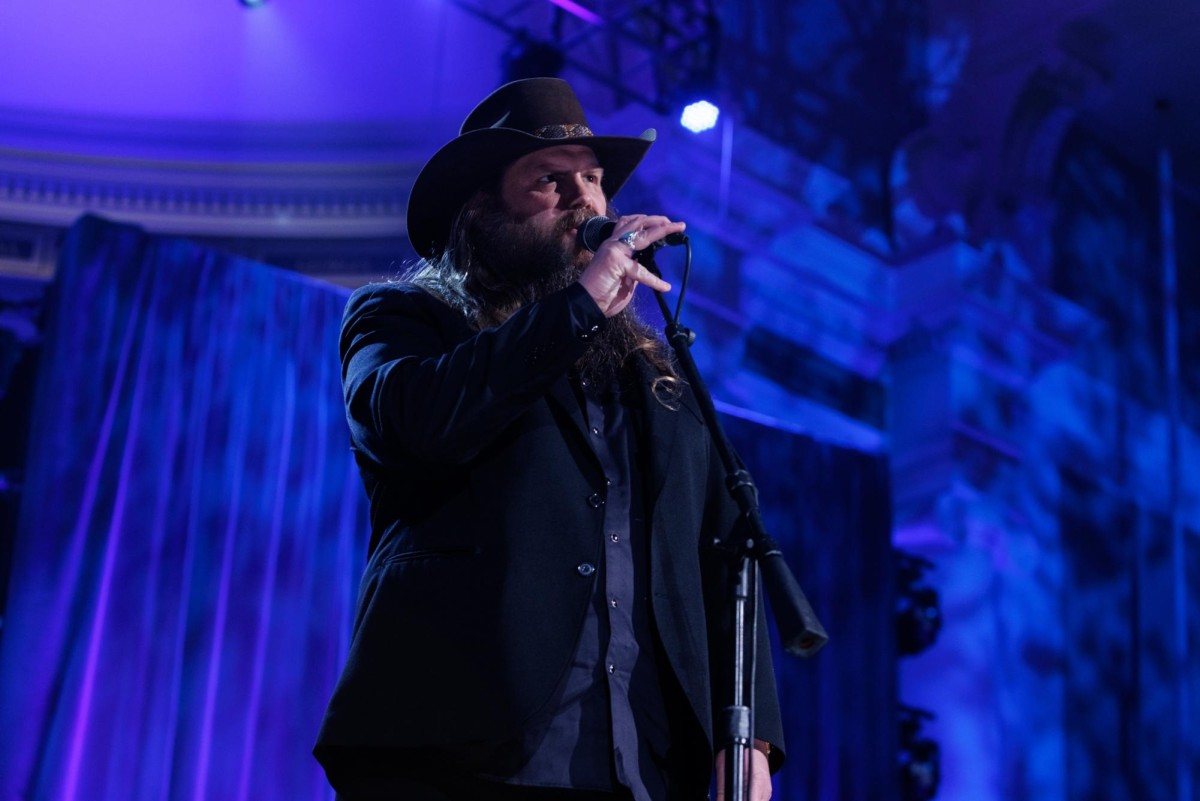Chris Stapleton has a voice you can trust. Over strummed acoustic guitars, bluesy electric guitar riffs or organ hits, Stapleton’s warm, bellowing tenor can feel very familiar. His unique pronunciation of words, like letting vowels hang loose, is key in his popular country songs.
Other acclaimed country songwriters from the mid-2010s –– for example, Jason Isbell or Tyler Childers –– have honed their storytelling or experimented with style. Instead, Stapleton has leaned into his comfort zone of acoustic, breezy ballads and blues-infused romps. Even as his songwriting has remained average, Stapleton’s voice puts him at an obvious advantage. Stapleton’s songs incorporate generic phrases and clichés about love and trouble, but when he’s singing them, it can feel like he invented them.
Over the nearly 55 minutes that make up his newest album “Higher,” he stays in his comfort zone, pairing snug guitar chords with as many platitudes as possible. There’s “It Takes a Woman,” which is an unthinkingly simple waltz complete with the line “To feel like a man / It takes a woman.” With the galloping “Crosswind,” Stapleton takes inspiration from the instrumentals in his best song, “Parachute,” and pairs it with lines about how he “might not make it out alive.”
Despite originally making his name as a songwriter-for-hire in 2001, Stapleton hasn’t been able to craft a distinct voice as a writer. His breakthrough hit, 2015’s “Tennessee Whisky,” was an ideal introduction as a cover that allowed Stapleton to showcase his commanding voice through a country classic.
In Stapleton’s previous four albums, his songwriting is elevated by the expertise of Dave Cobb, who has worked as a producer alongside industry greats like Isbell, Lori McKenna and John Prine. Cobb knows how to give acoustic guitars a feeling of impact without them ever sounding percussive, which elevates his new album’s slower numbers. Every snarled guitar solo adds to the music, finding a balance between overwrought and self-serious tones. Whenever pedal-steel guitars appear on “Crosswind” or the stark title track, “Higher,” Cobb’s production work makes them an integral part of the song’s arrangements. But there’s only so much mileage Cobb can get out of Stapleton’s agreeable yet vague songs.
The strongest parts of “Higher” are when Stapleton lets loose — whether that’s in his righteous voice or crunchy, rocking instrumentation. These songs take the weight off of Stapleton’s lyricism, allowing the tracks to be a vehicle for a great guitar melody or an excellent vocal wail.
On “South Dakota,” Stapleton’s yelp and the distorted guitar instrumental work together to tell his tale about falling down and out in an unfamiliar town. Thanks to bassist J.T. Cure, the soulful “Think I’m In Love With You” locks into a funky groove, aided by swooning violins and the sound of the organ. The explosive chorus of “White Horse” helps lines about cowboys riding off into the sunset carry genuine gravitas, which explains its hit single status.
Throughout the slightly punishing 14 songs that make up “Higher,” Stapleton consistently sounds fabulous. He always manages to pair his voice to what he’s singing about, sounding panicked on the whisky-soaked heartbreak “The Bottom” or resigned on the melancholic opener “What Am I Gonna Do.” Often joined in harmony by his wife, Morgane Stapleton, the vocals throughout this record are its highlight. But that’s to be expected from Stapleton, which is what makes “Higher” his first album where his reliance on truisms starts to wear thin — even when they’re sung by his fantastic, rich voice.
Contact Ethan Beck at [email protected].
























































































































































